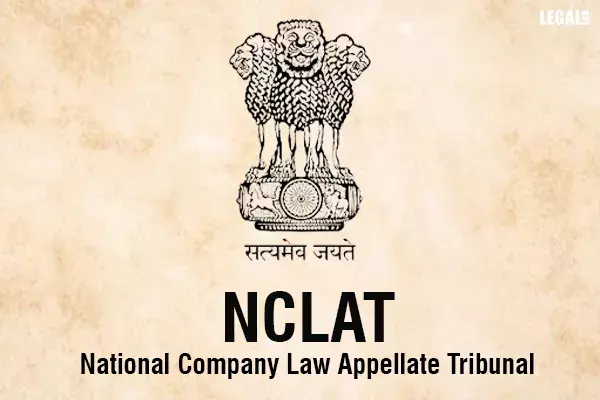NCLAT Delhi Upholds IBC Priority for Dissenting Creditors, Rejects Upfront Payment Demand
The National Company Law Appellate Tribunal (NCLAT), New Delhi Bench, composed of Justice Ashok Bhushan (Chairperson) and;

NCLAT Delhi Upholds IBC Priority for Dissenting Creditors, Rejects Upfront Payment Demand
The National Company Law Appellate Tribunal (NCLAT), New Delhi Bench, composed of Justice Ashok Bhushan (Chairperson) and Barun Mitra (Technical Member), has ruled that the Insolvency and Bankruptcy Code (IBC) does not mandate upfront payment to dissenting Financial Creditors within the resolution plan by the Successful Resolution Applicant.
The resolution plan proposed an immediate payout to assenting financial creditors within 90 days while dissenting creditors were to be paid in three years. Dissenting creditors argued for immediate payment, but the Court ruled that no provision in the law mandates upfront payment to dissenting creditors. The law instead requires payment "in priority" to assenting creditors who approved the plan.
Shivaji Cane Processors Limited, the Corporate Debtor, operates within the sugar industry, primarily focusing on sugar production and sugarcane processing.
The National Company Law Tribunal (NCLT) initiated the Corporate Insolvency Resolution Process (CIRP) for the Corporate Debtor on February 18, 2021.
Puro Naturals JV, designated as the Successful Resolution Applicant (SRA), submitted a Resolution Plan for the Corporate Debtor. This plan received approval from the Committee of Creditors (CoC) with a strong majority vote of 78.03 per cent.
Shree Warana Sahakari Bank Limited and Kolhapur Urban Co-operative Bank, holding dissenting votes of 11.13 per cent and 10.84 per cent respectively, opposed the Resolution Plan. The plan proposed immediate payment to Financial Creditors within 90 days while dissenting Financial Creditors would receive payment over three years. These dissenting creditors argued that this payment scheme contradicts the principles of the Insolvency and Bankruptcy Code (IBC).
The Resolution Professional submitted an application to the NCLT, requesting approval of the Resolution Plan under Section 30(6) of the Insolvency and Bankruptcy Code (IBC). Dissenting creditors filed objections to the proposed plan.
The NCLT, citing the attempt to extinguish personal guarantees and securities without the consent of dissenting Financial Creditors, rejected the Resolution Plan on May 1, 2023. The SRA subsequently filed an appeal before the NCLAT challenging the NCLT's Order.
The NCLAT Bench observed that under the Insolvency and Bankruptcy Code (IBC), a Financial Creditor who does not approve the Resolution Plan is entitled to receive payment in accordance with Section 53(1) if the Corporate Debtor is liquidated. Furthermore, the dissenting Financial Creditor must be paid before the Financial Creditors who approved the Resolution Plan.
The NCLAT noted that the Insolvency and Bankruptcy Code (IBC) and its corresponding CIRP Regulations do not mandate upfront payment to dissenting Financial Creditors. Instead, the IBC primarily emphasizes that such creditors receive payment before those who approved the Resolution Plan.
“There is no provision that can be pointed out, which requires Successful Resolution Applicant to make upfront payment to the dissenting Financial Creditors. What is required by law is the payment in priority over the Financial Creditors who voted in favour of the plan,” the NCLAT Bench observed.
The NCLAT relied heavily on the Supreme Court's judgment in Jaypee Kensington Boulevard Apartments Welfare Association & Ors. vs. NBCC (India) Limited and Ors., which established that Section 30(2) and Regulation 38 of the IBC prioritise the payment of not only operational creditors but also dissenting financial creditors over assenting financial creditors.
The NCLAT Bench noted that the Resolution Plan ensured the payment to dissenting Financial Creditors received priority, as mandated by the IBC. This priority principle applies regardless of the payment method, whether upfront or in instalments. Consequently, the payment arrangement for dissenting Financial Creditors complies with the IBC's priority scheme.
The NCLAT held that Respondents 1 and 2 were not being denied the payment they were entitled to under Section 53(1). Instead, they contended that their payment was not prioritised compared to that of assenting financial creditors. The Bench acknowledged their submission and determined that the payment structure outlined in the resolution plan complied with the principle of prioritising dissenting financial creditors. Therefore, the Bench found no merit in the respondents' argument.
The Bench concluded that the Resolution Plan submitted by the SRA was in compliance with all applicable laws and regulations and that it provided a fair and equitable outcome for all stakeholders. Consequently, the court approved the plan.

